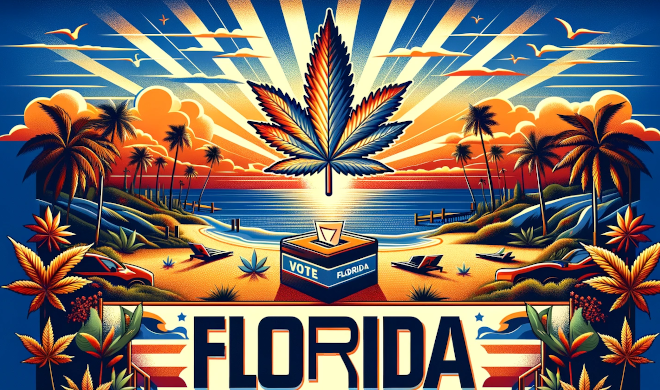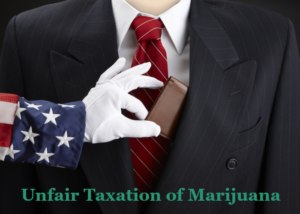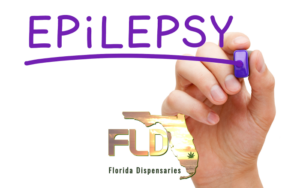
Will Floridians Legalize Adult Use Cannabis in 2024?
This November, Floridians will have the chance to vote on the legalization of recreational marijuana in their home state. Last month, the Supreme Court approved Florida Amendment 3 for appearance on the upcoming fall ballot. Under state law, the bill would require a “supermajority” approval from 60% of the individuals who cast their votes in the upcoming fall ballot.
What You Need to Know About Amendment 3
But what is Amendment 3, and what will Floridians be voting on when they cast their opinions on the bill? Who are the bill’s key supporters and opponents, and what will Floridians vote on when they voice their opinions on the bill? And if Amendment 3 does pass, what would recreational marijuana look like in FL?
In this article, we cover everything you need to know about Amendment 3 and its proposed changes to Florida’s legal cannabis landscape.
What is Amendment 3? What’s At Stake in the Recreational Vote
Amendment 3, the Marijuana Legalization Initiative, is a bill that proposes to legalize recreational marijuana in the state of Florida. Though Florida legalized medical cannabis in 2016, limitations continue to hinder marijuana access for many residents of the state. Currently, marijuana purchases in FL are legal only for residents with qualifying conditions, who must register for a card through the state’s medical program. Legal cannabis products are sold at strictly medical dispensaries, which allow purchases only from registered cardholders with qualifying conditions approved by licensed physicians in the state.
If Amendment 3 passes, Florida dispensaries will expand access to all adult residents. The bill would allow anyone aged 21 and older to purchase legal, vetted cannabis products, and would allow individuals to possess up to three ounces of marijuana at a time, including up to five grams of concentrate.
Adult-Use Products to Be Sold by Existing, Medical-Only FL Dispensaries & Cannabis Brands
Under Amendment 3, existing medical marijuana dispensaries would be authorized to expand access and begin selling cannabis products for adult use. This would allow individuals without a medical card to begin shopping at one of the state’s 628 dispensaries, which are currently restricted only to registered cardholders in the state.
The bill would also allow Florida’s 25 licensed, Florida-based medical marijuana companies–including major players such as Trulieve–to sell marijuana for recreational purposes, and to stock the shelves of FL dispensaries with adult-use cannabis products. Meanwhile, plans are underway to issue an additional 22 medical marijuana licenses to new, emerging companies–which, if the bill passes, would also be permitted to begin distributing products intended for recreational use.
Behind the Bill: Smart & Safe Florida
Amendment 3 is sponsored by the Smart and Safe Florida Campaign, which has received $54.93 million in contributions supporting the ballot. MSOs such as Trulieve and other, Florida-based cannabis companies have been some of the most significant contributors to the campaign.
Spokespeople for the Smart & Safe Florida Campaign have voiced the need to suppress black market sales statewide by legalizing cannabis for adult use:
“The industry is sustainable and growing….There is no evidence that legalizing marijuana for medical or recreational use at the state level, as 37 states have already done, has boosted underage consumption from the regulated marketplace. The continued black market sale of marijuana perpetuates a culture of criminality…If adult use cannabis is legalized, Florida users will have accountability, transparency and regulations in place to ensure products are not laced with or contain potentially deadly chemicals.”
Currently, Floridians without access to a medical card are likely to turn to the state’s black market for cannabis products. Yet doing so comes with enormous safety concerns, as the Vitamin E vaping crisis of 2019 has shown. As long as cannabis is sold on the black market, Floridians will risk encountering illegitimate products that are ineffective and falsely advertised, at best, and laced with dangerous, life-threatening chemicals, at worst.
If recreational cannabis is legalized, however, all Floridians will have access to safe, vetted cannabis products created according to stringent, state-imposed safety regulations. Before reaching dispensary shelves, adult-use cannabis products would undergo testing for residual chemicals, mold, heavy metals, and pesticides often found in black market products. Additional testing would confirm that products contain the correct amount of cannabinoids advertised, and that they are cultivated and extracted according to the highest safety standards. Yet until adult-use cannabis is legalized, cannabis consumers without their medical cards will have no such guarantee.
This makes safety a major motivation behind Smart & Safe campaign to legalize adult-use marijuana consumption, and to make safe, regulated cannabis accessible to all.
Statewide Benefits: What Recreational Legalization Could Do for Florida
Opposition from DeSantis and State Lawmakers
Despite the support that Smart & Safe has garnered, the bill continues to face powerful opposition. One of its most vocal critics has been Governor Ron de Santis, who spoke out against the bill in the wake of its recent approval by the Supreme Court:
“This state will start to smell like marijuana in our cities and towns,” DeSantis said. “It will reduce the quality of life.”
To the contrary, Smart & Safe Florida issued a reminder that Amendment 3 does not promote the consumption of marijuana in public places, and would prohibit the use or sale of marijuana in locations such as school zones:
“If voters approve the amendment, the Legislature will have full authority to regulate or ban the use of marijuana in public places—that it already exercises for tobacco and alcohol,” said advocates John Bash and Glenn Burhans.
Nonetheless, the bill has met additional opposition from groups such as “Floridians Against Recreational Marijuana,” headed by Republican officials who have called Amendment 3 too broad in terms of proposed restrictions. Yet figures such as Paula Savenchko–founder of the Cannacore Group–has reminded Floridians that the bill would by no means allow adult use without regulation:
“A lot of people have the concern that, ‘Oh, no, they are going to do this without regulations. [But] that’s just not the reality of what’s going to happen.”

Inside the State’s Journey to Legalization
Florida legalized medical marijuana in 2014 with the Compassionate Medical Cannabis Act, which went into effect on January 1 2015. However, if this new initiative for adult-use cannabis makes it onto the November ballot and is passed by voters, access to marijuana in for Florida residents would expand considerably, allowing all adults aged 21 and older to purchase cannabis products at adult-use dispensaries–whether or not they hold their medical cards.
In this article, we reflect on Florida’s legalization journey, assessing the details of this new measure, as well as past attempts to legalize recreational marijuana in the state, and the history of the state’s medical program. Read on to learn more about Florida’s journey to an adult-use market, and what recreational legalization would look like for dispensary shoppers in the Sunshine state.
What Adult Use Legalization Would Look Like in Florida
If adult-use legalization secures a majority vote in the 2024 election, Florida would alter its state constitution to allow existing, medical cannabis companies in the state (such as Trulieve) to sell cannabis products to all adults aged 21 and older–regardless as to whether they possess a medical card. The bill also contains a provision that would allow the approval of additional businesses, such as dispensaries specifically catered towards adult-use customers–allowing Floridians to establish recreational dispensaries, in addition to the state’s existing medical retail locations.
The new legislation would legalize the possession and purchase of adult-use cannabis products in limited quantities, including up to one ounce of cannabis total–only five grams of which can comprise high-potency concentrates such as dabs, shatter, or wax. These limitations may evolve if the bill is passed. The bill also endows Florida’s Medical Marijuana Treatment Centers, alongside other, state-licensed entities, to acquire, cultivate, process, manufacture, and sell adult-use cannabis products.
However, for many cannabis advocates, the new bill has limitations. In particular, this year’s proposed legislation lacks the emphasis upon equity and socioeconomic justice often seen in similar, adult-use legalization initiatives, which often call for the expungement of nonviolent, cannabis related convictions and prison sentences. Nonetheless, if passed, the bill would mark a major step forward for Florida’s cannabis landscape.
The History of Florida’s Adult-Use Legalization Attempts
Though the outlook of Florida’s adult-use bill sounds promising, cannabis advocates and lawmakers have faced plenty of opposition in response to the current measure.
In early February, for instance, state lawmaker Rep. Ralph Massullo proposed a THC cap to set a 10% THC limit (by weight) for smokable cannabis products, and a 60% limit for ingestibles. Massullo’s proposed bill would limit the potency of edibles, for instance, to 200mg per container, and 10mg per piece. And just last summer, DeSantis himself enacted a law to restrict advertising and manufacturing by legitimate medical dispensaries in the state, imposing regulations to prohibit product branding or messaging that promoted “recreational” use of medical dispensary products. In addition, DeSantis added additional eligibility requirements for industry workers, while passing a June 2023 bill that prohibited residents of sober living facilities from using legal, medical marijuana products.
Though these challenges are legitimate, cannabis advocates are hopeful that this ballot will fare favorably compared to legalization attempts in the recent past.
In the past, Moody has successfully petitioned the court to prevent a similar measure from making the ballot in 2022. And last November, the Supreme Court heard oral arguments in opposition against adult-use legalization proposed by the Smart & Safe Florida Campaign. The court has yet to issue a ruling on this issue, which should arrive by or before April 1st.
DeSantis, however, has suggested that this year’s outcome will be different. And in addition to his remarks about legalization, DeSantis has also offered comments on other aspects of marijuana legislation in recent weeks. In a separate response to Murphy, DeSantis declared that the federal gun ban for registered Florida cardholders is unconstitutional. Last year, Florida’s gun ban spurred a lawsuit against the Biden Administration by former Florida agricultural commissioner Nikki Fried, though DeSantis was not involved in the case.
Medical Marijuana in Florida: From 2014 to Present
In January 2015, Florida’s medical marijuana program went into effect with the Compassionate Medical Cannabis Act of 2014, which initially allowed access only to non-smokeable, low-THC marijuana products for qualified medical patients.
Since then, Florida’s medical marijuana program has increased considerably, allowing a wider variety of product formats while expanding qualifying conditions. This expansion occurred under the Right to Try Act of 2016, which allowed patients diagnosed with terminal conditions to access full potency cannabis extracts, while a citizen referendum in November of the same year mandated an expansion of the state’s medical program for all qualifying cardholders. And shortly thereafter in 2017, the Florida House of Representatives and the State Senate both passed legislation to implement this expansion, replacing large portions of the prior Compassionate Use Care Act to provide more flexibility with regard to product formats and potencies, including:
- Flower and Pre-Rolls
- Edibles containing up to 10mg THC per piece
- Vaporizers
- Concentrates
- Oral & Sublingual Tinctures
- Topicals & Transdermal Patches
- Rick Simpson Oil (RSO)
- Capsules
- And many more…
This 2017 revision also expanded the list of qualifying conditions for a medical marijuana order in Florida, which currently include:
- Cancer
- Epilepsy
- Glaucoma
- HIV/AIDS
- Post-traumatic stress disorder (PTSD)
- Amyotrophic lateral sclerosis (ALS)
- Crohn’s disease
- Parkinson’s disease
- Multiple sclerosis (MS)
- A terminal condition diagnosed by a physician other than the qualified physician issuing the physician certification.
- Chronic nonmalignant pain caused by a qualifying medical condition or that originates from a qualifying medical condition and persists beyond the usual course of that qualifying medical condition.
- Medical conditions of the same kind or class as or comparable to the others listed.
Get Your Medical Card in FL
Though the verdict on adult-use sales in Florida remains to be determined, residents with qualifying conditions can access vetted, legal cannabis products through Florida’s pre-existing network of medical dispensaries. Haven’t signed up for your medical card yet? Don’t worry–it’s never too late, and FLDispensaries makes the process easier than ever, guiding patients through every step of the process from beginning to end.
To get started, fill out this form to see if you qualify today, and you’ll be contacted by a representative from an ordering doctor’s office to set up your appointment for a medical marijuana order.







